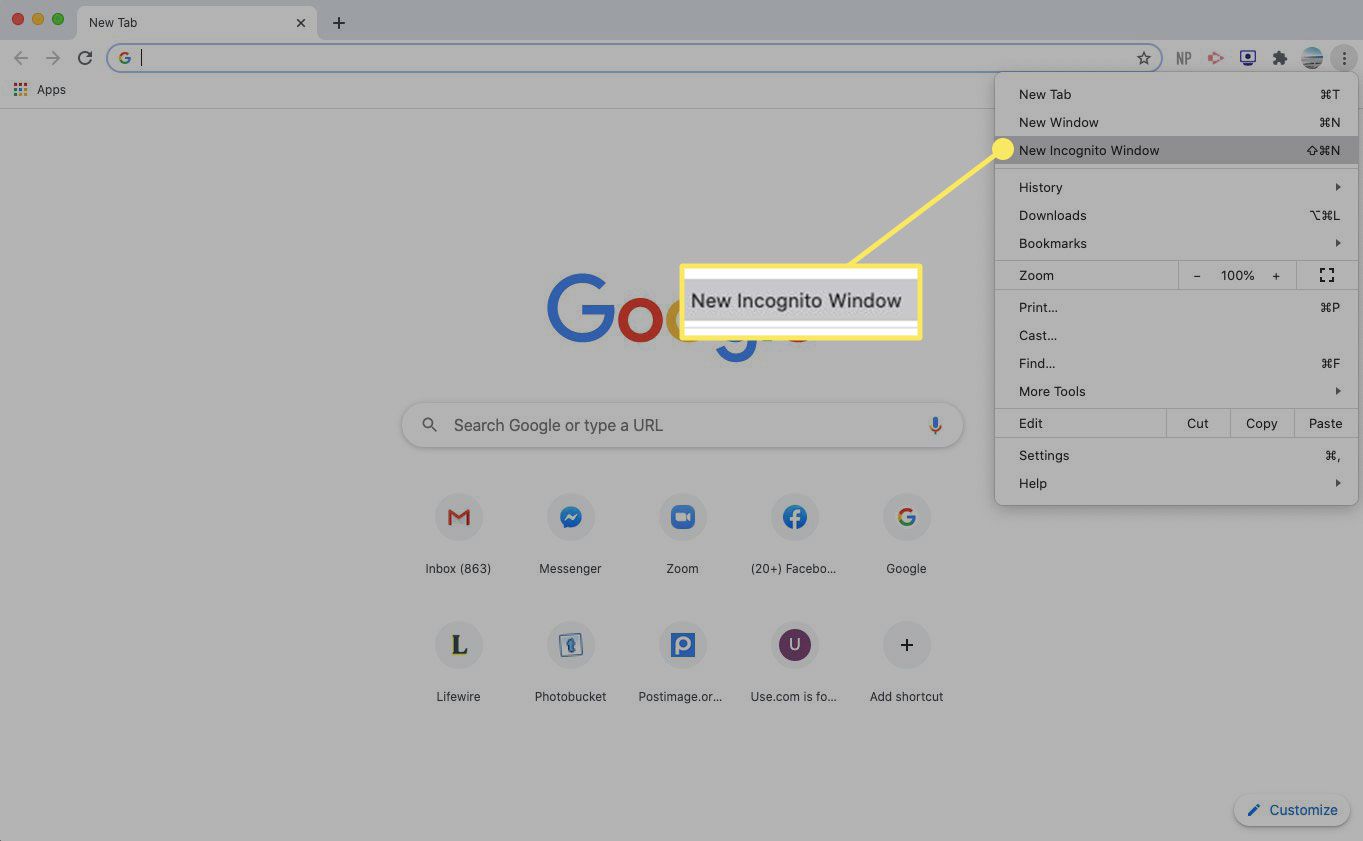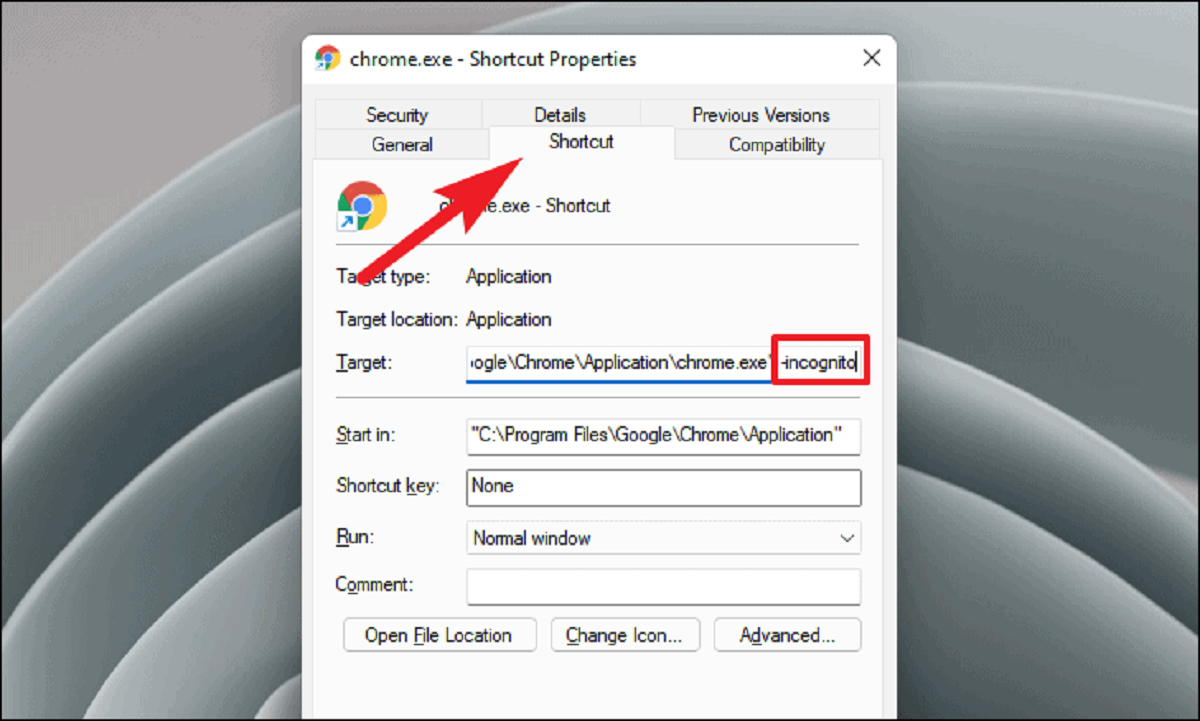Introduction
Have you ever been told to "close your browser" but wondered what it actually means? In today's digital age, where web browsing has become an integral part of our daily lives, understanding the concept of closing your browser is essential. Whether you're a seasoned internet user or just getting started, knowing how to properly close your browser can have a significant impact on your online experience.
Closing your browser involves more than just clicking the "X" button in the corner of the window. It's a fundamental action that can help protect your privacy, improve the performance of your device, and ensure a seamless browsing experience. In this article, we'll delve into the meaning of "close your browser," explore the reasons why it's important, and provide practical tips on how to do it effectively.
So, if you've ever wondered about the significance of closing your browser or simply want to enhance your browsing skills, you're in the right place. Let's embark on a journey to unravel the mysteries of browser closure and discover the valuable benefits it can bring to your online activities.
Definition of "Close Your Browser"
When you hear the phrase "close your browser," it refers to the action of shutting down the web browsing application you are using, such as Google Chrome, Mozilla Firefox, Safari, or Microsoft Edge. This process involves terminating all active tabs and windows within the browser, effectively ending your current browsing session.
Closing your browser is not the same as simply minimizing the window or switching to a different application. It entails completely exiting the browser software, which can be accomplished by clicking the "X" button in the top-right corner of the browser window or using the keyboard shortcut specific to your operating system.
By closing your browser, you are effectively ending your current online session, ensuring that no web pages, cookies, or temporary internet files remain active or accessible. This action also terminates any active scripts or processes associated with the browser, providing a clean slate for your next browsing session.
Understanding the concept of closing your browser is crucial for maintaining privacy and security while using the internet. It helps prevent unauthorized access to your browsing history, saved passwords, and other sensitive information. Additionally, closing your browser can contribute to the overall performance of your device by freeing up system resources that may be consumed by active browser processes.
In essence, the act of closing your browser signifies the deliberate termination of your current online activities, providing a fresh start for your next browsing session. It's a fundamental practice that promotes privacy, security, and optimal performance, making it an essential skill for anyone navigating the digital landscape.
Why You Should Close Your Browser
Closing your browser is not just a mundane task; it holds significant importance in ensuring a secure and efficient browsing experience. Here are compelling reasons why you should make it a habit to close your browser regularly:
Privacy Protection
When you close your browser, you effectively clear your browsing history, cookies, and temporary internet files. This action helps safeguard your privacy by preventing unauthorized access to your online activities. By eliminating traces of your browsing session, you reduce the risk of potential privacy breaches and unauthorized data collection. Whether you've been researching sensitive topics, accessing personal accounts, or simply browsing the web, closing your browser can help maintain the confidentiality of your online interactions.
Security Enhancement
Leaving your browser open for extended periods can expose your device to security risks. Active browser sessions may be vulnerable to malicious attacks, potentially leading to unauthorized access, data theft, or the installation of harmful software. By regularly closing your browser, you mitigate these risks and reduce the likelihood of security breaches. This proactive approach to browser management contributes to a more secure online environment for both personal and professional use.
Resource Optimization
Modern web browsers are robust applications that consume system resources, including memory and processing power. When left open for prolonged periods, browsers can accumulate a significant amount of memory and CPU usage, potentially impacting the performance of your device. By closing your browser when it's not in use, you free up valuable system resources, allowing other applications to run more efficiently. This can lead to improved overall system performance and a smoother multitasking experience.
Tab and Session Management
Closing your browser enables you to start fresh with a clean slate for your next browsing session. It allows you to manage your tabs and sessions effectively, preventing clutter and confusion caused by numerous open tabs. By closing your browser and reopening it, you can organize your browsing activities, prioritize essential tasks, and maintain a structured approach to online productivity. This practice fosters a more organized and streamlined browsing experience, enhancing your overall efficiency and focus.
Browser Updates and Maintenance
Regularly closing your browser allows it to undergo necessary updates and maintenance processes. Many browsers automatically check for updates when launched, ensuring that you have the latest security patches, bug fixes, and feature enhancements. By closing your browser at the end of your session, you facilitate the seamless implementation of these updates, contributing to a more secure and optimized browsing environment.
In essence, closing your browser is not just a routine action; it's a proactive step towards safeguarding your privacy, enhancing security, optimizing system resources, and maintaining a structured approach to online activities. By understanding the significance of closing your browser and incorporating it into your browsing habits, you can elevate your digital experience and enjoy a safer, more efficient online journey.
How to Close Your Browser
Closing your browser is a simple yet essential task that can be accomplished using various methods, depending on the device and browser you are using. Here's a comprehensive guide on how to effectively close your browser:
Method 1: Using the "X" Button
-
Windows and Linux: In most web browsers, including Google Chrome, Mozilla Firefox, and Microsoft Edge, you can close the browser window by clicking the "X" button located in the top-right corner of the window. This action will terminate the browser and end your current browsing session.
-
Mac: On a Mac computer, the "X" button is also used to close the browser window. Simply click the red "X" in the top-left corner of the window to exit the browser and conclude your browsing activities.
Method 2: Keyboard Shortcuts
-
Windows and Linux: You can use keyboard shortcuts to close your browser window. Pressing "Alt + F4" on your keyboard will effectively shut down the active browser window, allowing you to end your browsing session with ease.
-
Mac: For Mac users, the keyboard shortcut "Command + W" can be used to close the active browser tab or window. By pressing this combination, you can swiftly terminate your browsing session and return to your desktop or other applications.
Method 3: Task Manager (Advanced)
-
Windows: In certain situations where your browser becomes unresponsive or fails to close using the standard methods, you can utilize the Task Manager to force the browser to close. Press "Ctrl + Shift + Esc" to open the Task Manager, locate the browser process (e.g., chrome.exe for Google Chrome), and select "End Task" to forcefully close the browser.
-
Mac: On a Mac computer, you can use the Activity Monitor to force quit the browser if it becomes unresponsive. Open the Activity Monitor, locate the browser process, and choose the "Force Quit" option to terminate the browser.
By familiarizing yourself with these methods, you can confidently and efficiently close your browser, ensuring that your browsing sessions are concluded in a secure and organized manner. Whether you prefer using the standard "X" button, keyboard shortcuts, or advanced techniques, mastering the art of closing your browser is an essential skill for navigating the digital realm with confidence and ease.
Benefits of Closing Your Browser
Closing your browser offers a myriad of benefits that extend beyond the simple act of ending a browsing session. By understanding and embracing these advantages, you can elevate your online experience and optimize the performance of your device. Let's explore the compelling benefits of regularly closing your browser:
1. Enhanced Privacy and Security
When you close your browser, you effectively erase traces of your online activities, including browsing history, cookies, and temporary internet files. This proactive approach to data management helps safeguard your privacy by preventing unauthorized access to your browsing habits and personal information. Additionally, closing your browser reduces the risk of potential security breaches, protecting your device from malicious attacks and unauthorized data collection. By prioritizing privacy and security through regular browser closure, you can navigate the digital landscape with confidence and peace of mind.
2. Improved System Performance
Modern web browsers are robust applications that consume system resources, such as memory and processing power. When left open for extended periods, browsers can accumulate a significant amount of memory and CPU usage, potentially impacting the overall performance of your device. By closing your browser when it's not in use, you free up valuable system resources, allowing other applications to run more efficiently. This optimization of system performance contributes to a smoother multitasking experience and a responsive computing environment.
3. Efficient Tab and Session Management
Closing your browser enables you to start fresh with a clean slate for your next browsing session. It empowers you to manage your tabs and sessions effectively, preventing clutter and confusion caused by numerous open tabs. By closing your browser and reopening it, you can organize your browsing activities, prioritize essential tasks, and maintain a structured approach to online productivity. This practice fosters a more organized and streamlined browsing experience, enhancing your overall efficiency and focus.
4. Seamless Browser Updates and Maintenance
Regularly closing your browser allows it to undergo necessary updates and maintenance processes. Many browsers automatically check for updates when launched, ensuring that you have the latest security patches, bug fixes, and feature enhancements. By closing your browser at the end of your session, you facilitate the seamless implementation of these updates, contributing to a more secure and optimized browsing environment. This proactive approach to browser maintenance ensures that you stay up to date with the latest improvements and security measures, enhancing your overall browsing experience.
In essence, the benefits of closing your browser extend far beyond the immediate action of ending a browsing session. By embracing enhanced privacy and security, optimizing system performance, managing tabs and sessions efficiently, and facilitating seamless updates and maintenance, you can elevate your online experience and navigate the digital landscape with confidence and efficiency. Incorporating the practice of regularly closing your browser into your browsing habits can lead to a safer, more responsive, and organized digital journey.
Conclusion
In conclusion, the simple act of closing your browser holds significant implications for your online experience. By understanding the importance of ending your browsing sessions and embracing the practice of regular browser closure, you can enhance your privacy, security, and overall browsing efficiency.
Closing your browser is not merely a technical maneuver; it signifies a deliberate step towards safeguarding your privacy and protecting your digital footprint. By erasing traces of your online activities, such as browsing history and cookies, you mitigate the risk of unauthorized access to your personal information. This proactive approach to privacy management empowers you to navigate the web with confidence, knowing that your online interactions remain confidential and secure.
Moreover, the act of closing your browser contributes to the optimization of system resources, leading to improved device performance. Modern web browsers are resource-intensive applications, and leaving them open for extended periods can impact the overall responsiveness of your device. By closing your browser when it's not in use, you free up valuable memory and processing power, creating a more efficient computing environment for other tasks and applications.
Efficient tab and session management also come into play when you make a habit of closing your browser. Starting each browsing session with a clean slate allows you to prioritize tasks, organize your tabs, and maintain a structured approach to online productivity. This practice fosters a clutter-free and focused browsing experience, enabling you to make the most of your online activities without unnecessary distractions.
Furthermore, regular browser closure facilitates seamless updates and maintenance, ensuring that your browser remains equipped with the latest security patches and feature enhancements. By embracing this proactive approach to browser management, you stay ahead of potential vulnerabilities and benefit from an optimized browsing environment.
In essence, the significance of closing your browser extends beyond the immediate action; it embodies a commitment to privacy, security, and digital well-being. By incorporating the practice of regular browser closure into your online routine, you can elevate your browsing experience, foster a safer and more efficient digital journey, and navigate the web with confidence and peace of mind.

























